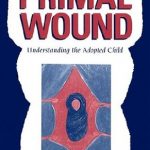Article Review – The Three Faces of Adoptees
Seminar for 2013 AAC – Cleveland, http://nancyverrier.com/the-three-faces-of-adoptees/, By Nancy Verrier, MFT, Author of The Primal Wound

The book, The Primal Wound, by Nancy Verrier was listed as “required” reading by those involved in adoptions (adoptees, adopters, birth parents, etc.) While reading the book, I noticed the author’s uncanny way of pinpointing several issues I had been dealing with as an adoptee. Though I may not agree with everything in the book, I highly recommend those interested in this topic (personally or professionally) to buy her book.
Anyway, when I noticed she was a presenter at an American Adoption Congress conference, I couldn’t resist reading her article, The Three Faces of Adoptees. I encourage you to read the entire article for the context. Here are some of my favorite quotes from her seminar article:
Children who are separated from their mothers early in life have different issues to deal with than those who are kept and cared for by their mothers. The relationship with the mother is the cornerstone for all future relationships. We are. . .meant to be close to our mothers in our early years.
“All mammals know their own mothers through all their senses. Therefore when a baby is immediately taken from the bio mom and handed over to another mom, the baby is confused and disoriented. ‘Where is mom?’ The new mom doesn’t pass the ‘sensory test.’ She doesn’t sound right, or smell right, or feel right, or have the right resonance or energy. The infant becomes disregulated. This is no one’s fault except that we continue to ignore it and therefore don’t address it. What does the child do?” [Read Consciousness and Awareness]
Last but not least:The child goes immediately into coping mode. Something devastating happened…
Baby beliefs are imprinted into the neurological system and therefore, difficult to overcome. [Read Article Review_7 Ways to Bond With Preborn Baby]